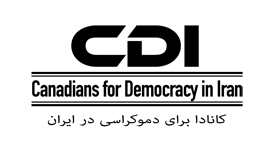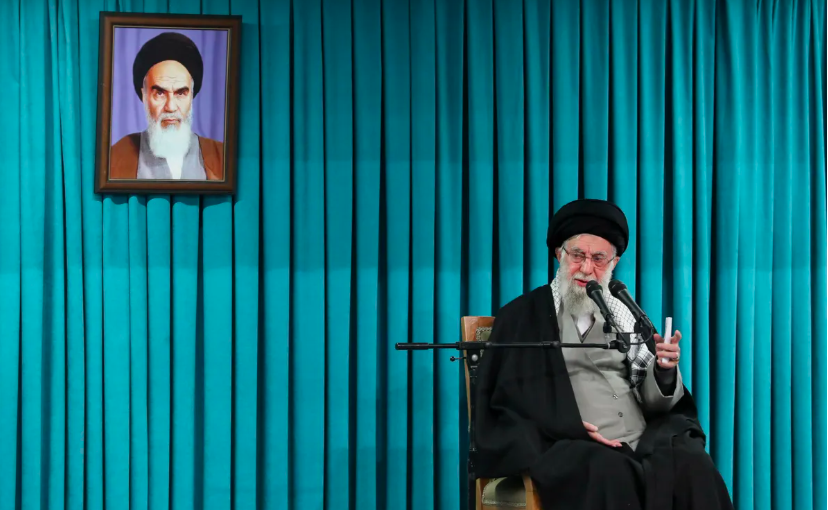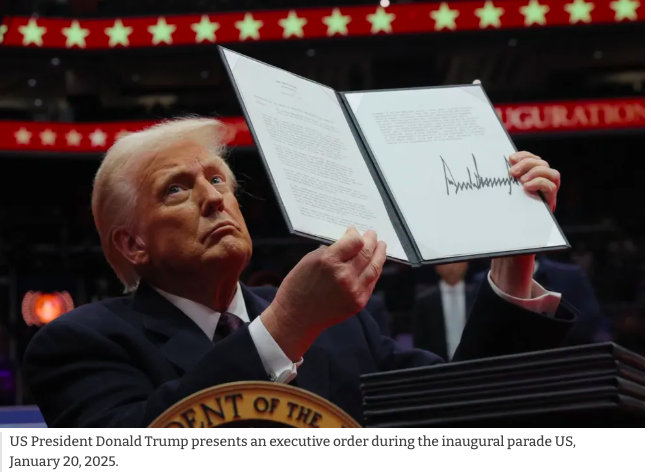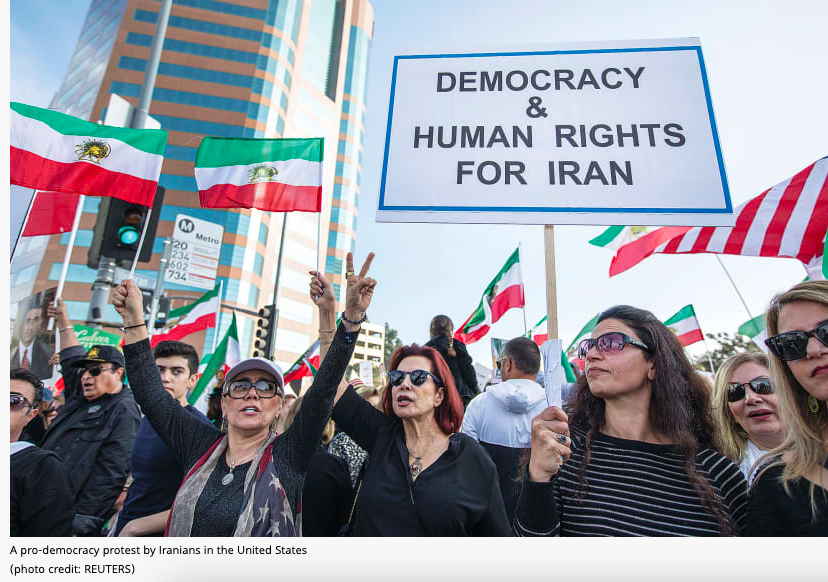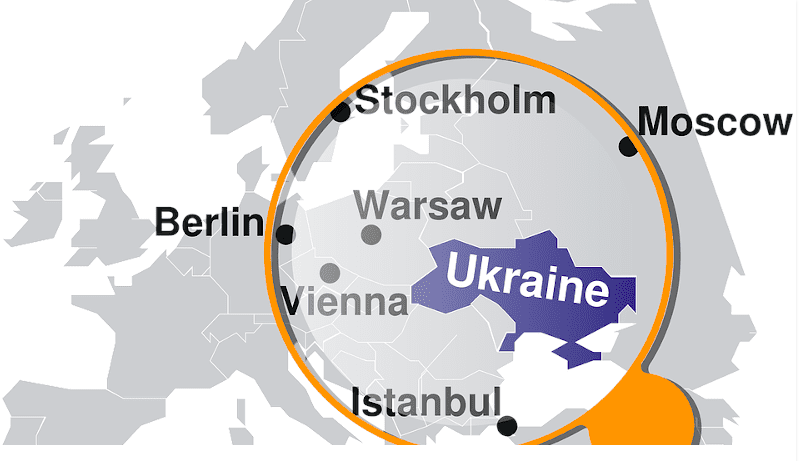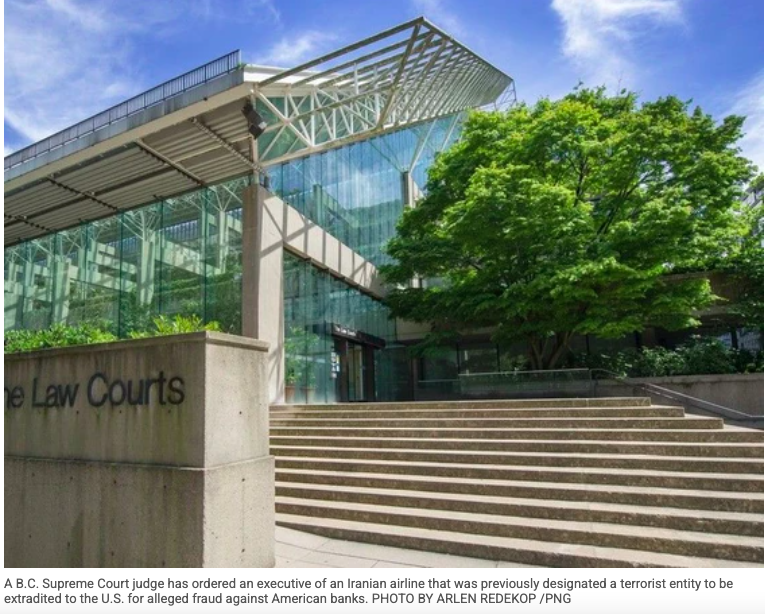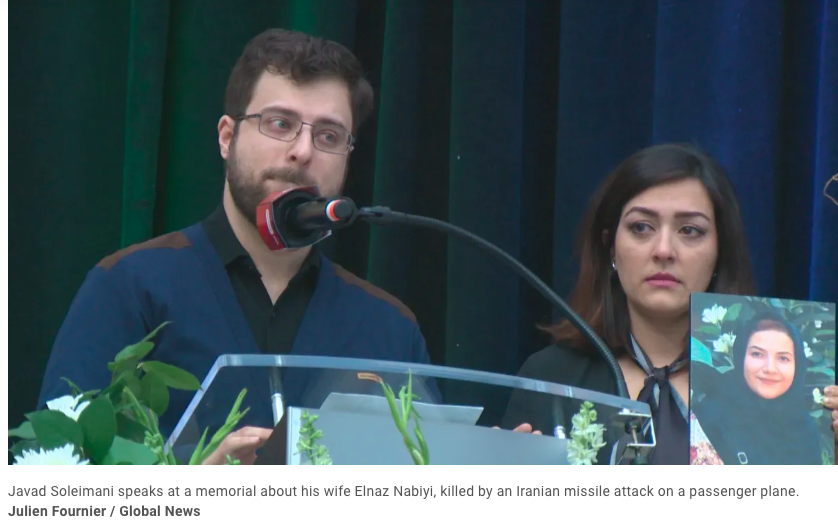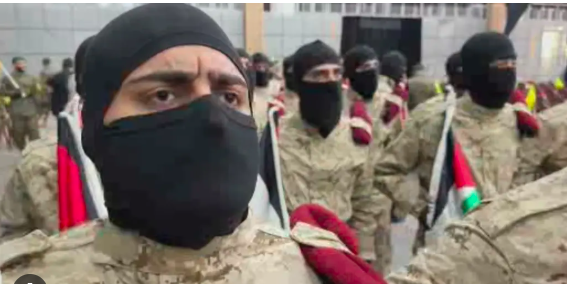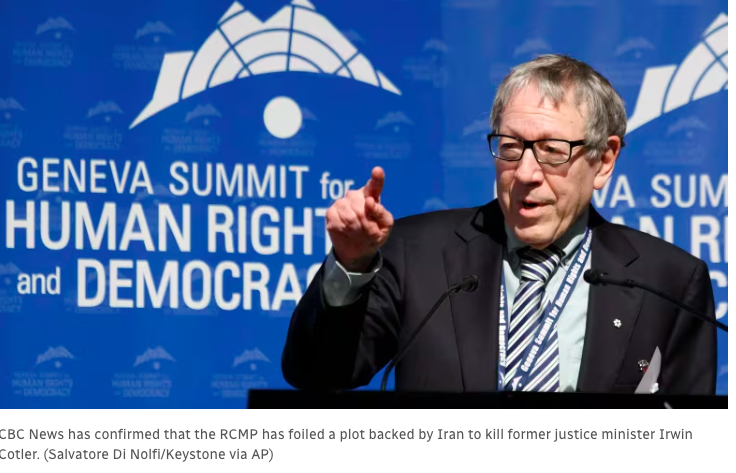Although Iran is accused of widespread human rights abuses and sponsoring terrorist groups Hamas, Hezbollah and Yemen’s Houthis, its senior officials have been turning up in Canada.
The CBSA has identified 18 alleged officials living across the country. Three have had hearings so far. The IRB issued deportation orders against two of them but declined to expel the third.
A fourth official left Canada voluntarily. Another six cases are still before the IRB. Immigration authorities also cancelled 84 visas as part of the crackdown, the CBSA said.
But Iranian Canadian activists want the federal government to do better job of screening out regime members who they say are treating the country as a safe haven.
In her report on foreign interference released Tuesday, Commissioner Marie-Josée Hogue wrote that community members had told her Iranian officials “live openly and freely in Canada.”
“The senior officials are coming here because they don’t want to live under the conditions that they have created in Iran,” said Kaveh Shahrooz, a Toronto lawyer and senior fellow at the Macdonald-Laurier Institute.
“But they’re choosing Canada because frankly it’s easy to get in here.”
He said the lapse has left Iranian Canadians fearful and frustrated at the unfairness of an immigration system that refuses visas to their family members but lets in regime officials.
“It just points to a system that is not functioning as we’ve been promised by our politicians.”
He called for clearer guidance for immigration officers conducting security screening of Iranians seeking to come to Canada, and more resources for the deportation process.
Under rules announced in November 2022, Iran’s senior officials were barred from Canada. The policy was a response to Tehran’s suppression of Woman, Life, Freedom movement protesters.
However, according to immigration documents released to Global News by the Federal Court, Zandi was able to enter Canada for “tourism” and then apply to stay on as a temporary resident worker.
Her application was made on Nov. 7, 2023 under the Iran public policy, which is meant for those who “feel uncomfortable returning to Iran” as a result of the regime’s killing and mass arrests of women’s rights activists.
Two months later, either Zandi or a representative acting on her behalf, “commenced a series of status enquiries with the office of Patrick Weiler, a Member of the House of Commons Canada,” according to immigration records.
A staff member in Weiler’s office began asking in January 2024 about the progress of Zandi’s immigration case and followed up in February, March, July and September, according to the immigration documents.
During that time, Weiler defended the government’s record on Iran in the House of Commons, reminding MPs about the 2022 decision to ban top Iranian officials from Canada.
“As a result, senior officials of the regime are now permanently inadmissible to Canada,” he said during an April 15, 2024 debate about whether to add the IRGC to Canada’s list of terror groups.
“This includes tens of thousands of Iranians, such as the head of state, senior IRGC members, intelligence operatives, senior government officials, diplomats and judges,” he said.
He called the government’s measures against Iran “some of the strongest in the world,” but raised questions about outlawing the IRGC, saying doing so could impact thousands of Canadians who had been conscripted into the Iranian militia.
The office of the MP, who represents the West Vancouver-Sunshine Coast-Sea to Sky Country riding, said Zandi’s daughter was a constituent and had asked for updates on her mother’s work permit application.
As a result, one of Weiler’s staff spoke to IRCC’s Ministerial Centre for Members of Parliament and Senators five times and relayed the responses to Zandi’s daughter, his office said in a statement.
Located in Montreal, MCMPS is the IRCC office set up to handle calls from MPs asking about the immigration cases of their constituents. Each query by an MP is noted in an applicant’s immigration file.
“The only person whom our office was in contact with was her daughter who requested case updates on her mother’s behalf, a service MP offices provide to all constituents,” the statement said.
The MP’s office said it was not aware of the details of Zandi’s security screening and welcomed the removal of anyone found inadmissible under the 2o22 Iran policy.
“We would like to emphasize as well that MP offices are not privy to, nor are we able to action in any way the security assessments for immigration cases,” the statement said.
“The job of constituency office caseworkers is to provide status updates on cases requested by constituents, nothing more.”
It is not the first time an MP’s office has been linked to the case of an Iranian under scrutiny for possible links to the regime.
According to court records, the office of Conservative Leader Pierre Poilievre asked for updates on Eshagh Ghalibaf in 2021.
The son of Iran’s parliamentary speaker, Ghalibaf had applied to immigrate to Canada and, like Zandi, launched a court case against Canada alleging his security screening was taking too long.
Immigration Minister Marc Miller said last February the government had refused the permanent residency application of Ghalibaf, whose father was also once a senior IRGC commander.
Six months after Zandi asked for a work permit, her Saskatoon-based lawyer, Oluwadamilola Asuni, sent IRCC a letter that complained of an “unreasonable and inordinate delay” and “demanded” a decision by June 14.
On Aug. 5, Zandi filed a case in the Federal Court that asked a judge to order the immigration department to make a decision on her application within five days.
The delay in processing her case was “unacceptable” and a breach of her “legitimate expectation,” said her court application, which sought reimbursement for her legal costs and another $10,000 in damages.
She also argued she had already been screened before she came to Canada.
The government responded in a written submission that “security screening remains in progress” and her court case should be dismissed since no decision had yet been made about her work permit.
But last week, the IRB said the CBSA had asked for a deportation hearing for Zandi under a section of immigration law that bans prescribed senior officials in the service of a government engaged in terrorism and gross rights abuses.
The hearing will be held in public, the IRB said.
Along with China and India, the Iranian regime is one of a handful of foreign governments Canada has accused of targeting the diaspora with threats and intimidation.
According to intelligence documents tabled at the foreign interference commission, Tehran monitors Iranian dissidents and women’s rights activists in Canada to silence criticism of the regime.
Meanwhile, Canada-based crime networks have helped Iran evade sanctions put in place to pressure the regime and curb its rights abuses and weapons and nuclear programs.
This email address is being protected from spambots. You need JavaScript enabled to view it.

